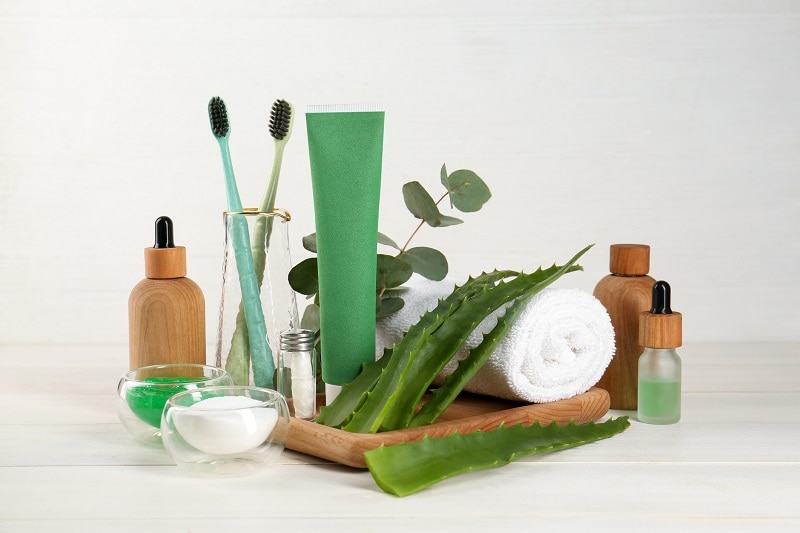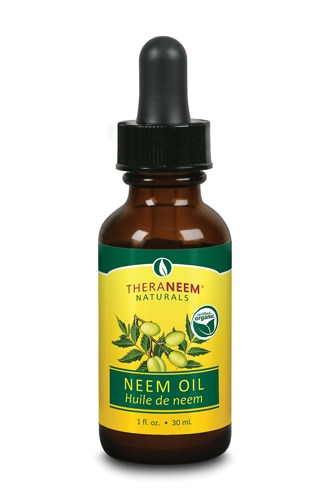[vc_row][vc_column][vc_column_text]Have you been reaching for
mouthwash or breath-freshening chewing
gum more often? Are your gums tender when you brush your teeth? Perhaps they bleed a little when you occasionally remember to floss. If so, you may have gingivitis, a common and mild form of gum disease that, left untreated, can eventually lead to tooth loss. But with a few changes in habit and the adoption of some economical herbal remedies, you could see a major difference in your periodontal health within a matter of weeks. Just check below for some all-natural home remedies for gingivitis prevention.
The chronic inflammation caused by gingivitis is also linked to systemic diseases such as diabetes, heart disease, stroke and arthritis, so keep reading to discover some tips that may improve your gum health – which in turn is connected to your overall health as well!

Home Remedies for Gingivitis Prevention
What exactly is gingivitis?
Gingivitis is the earliest stage of gum disease, when bacteria normally found in your mouth interact with sugars and starches from your meals causing plaque, a sticky film that builds up on your teeth and must be removed by manually brushing and flossing. If you don’t brush or floss often enough, the plague hardens or calcifies along your gum line, turns into tartar and collects even more bacteria This irritates the gums and can only be removed by a dental hygienist.
Healthy gums are firm, pale pink in color and fit tightly around each tooth. Whereas symptom of gingivitis include:
- Tender, swollen or dark red gums
- Gums that bleed easily when brushed or flossed
- Halitosis (bad breath)
- Receding gums
Now you can see why good oral hygiene – such as brushing and flossing daily – is so important to preventing gingivitis and keeping plaque at bay. Smoking or chewing tobacco also increases your risk of gum disease because it impairs inflammatory and immune responses to periodontal pathogens,
studies find. Other risk factors which may make you more susceptible to gum disease include if you have diabetes, a family history of gum disease, are low in vitamin C, have crooked teeth that are hard to clean or if you take medications that create dry mouth, as saliva helps protect gums and keeps your mouth clean.
4 Natural Home Remedies for Gingivitis
As you can see, there are some things you can do to prevent gingivitis while there are other things, like genetics, medications and pre-existing health conditions, over which you may have little control. That’s where the following home remedies come in. Regardless of whether you simply need to improve your oral hygiene habits by stepping up your flossing technique, or you’re trying to balance the side effects of your blood pressure medication, there are natural remedies for everyone. Get ready to improve your gum health!
1. Aloe vera juice rinse
Famous for easing sunburns, using the gel-like substance found in the leaves of this sun-loving succulent as a juice rinse can also help your gums because
aloe vera contains anti-inflammatory and antibacterial properties.
A study in 2016 found that aloe vera was as effective as chlorhexidine, a common antiseptic oral rinse, in significantly reducing gum disease symptoms. While it shouldn’t be ingested, use 100% pure aloe vera juice for the best results.
George's Always Active Aloe Vera is a great choice and as it is sold in 32 fluid ounces, you should be set for a while! If you’d prefer a more traditional mouthwash, you could also try
The Natural Dentist’s Healthy Gums Anti-gingivitis Rinse which contains 20% aloe vera juice as well as goldenseal, another powerful antibacterial herb.
Try this: Fill a small cup with 1 fluid ounce of aloe juice and rinse morning and night after brushing.
2. Tea tree and neem oil
Made from the leaves of the paperbark tree (
Melaleuca alternifolia),
tea tree oil was first discovered in the 1920s by Dr. Penfold who found it to be 12 times more potent than the current
antiseptics of that time. It has antifungal and antimicrobial compounds that inhibit the adhesion of bacteria that are related to tooth decay and gingivitis.
Likewise,
neem oil (
Azadirachta indica) is a plant from India and South Asia that has been used for thousands of years as a tool for maintaining healthy periodontium, as it has astringent, antiseptic and antiulcer properties. More recently, a study in
2011 found it to be comparable to chlorhexidine in addressing plaque-induced gingivitis.
Why not try
Desert Essence's Tea Tree Oil and Neem Wintergreen Toothpaste which combines both? Or consider incorporating
Desert Essence’s Tea Tree Oil Dental Floss into your new and improved oral hygiene practice. The American Dental Association recommends flossing at least once a day, and a study in
2018 indicates that it’s better to floss first and then brush, as research shows that flossing loosens bacteria and debris from between teeth, while brushing afterwards cleans those particles away. Why not complete your new routine with
TheraNeem’s Cinnamon Mouthwash? Containing both cinnamon and clove, along with neem, this is a trio of powerful herbs that pack quite an antimicrobial punch.
Try this: Replace your toothpaste and floss with tea tree and neem laced products such as the ones mentioned above!
3. Oil pulling
Oil pulling is an
Ayurvedic-based practice in which a small amount of oil, usually
sunflower or
sesame, is swished around in the mouth for between 10 to 20 minutes before being spit out. Though studies done on these oils were not very promising, oil pulling with
coconut oil has produced better results amongst research participants.
Coconut oil is unusual because unlike most dietary oils (such as the sunflower and sesame mentioned earlier) which consist of long chain fatty acids, coconut is made up of mostly medium chain fatty acids, 50% of which is lauric acid, an anti-inflammatory and antimicrobial compound that makes it effective. It can be tricky at first to swish for almost 20 minutes and it may feel a bit time consuming. Consider doing it while in the shower or washing dishes. As the oil is swished around between your teeth, it collects bacteria, so don’t swallow it when you are done. When spitting it out, avoid a drain where, over time, you could clog your pipes. Instead, head for a trash can.
When choosing coconut oil, try
Garden of Life's Organic Raw Extra Virgin Coconut Oil for a pure and unadulterated product. If you are looking for an oil that is already liquid (at any room temperature), consider
Pura D’or’s Organic Fractionated Coconut Oil.
Try this: Once a day, portion out a tablespoon of coconut oil and swish in your mouth and between your teeth for at least 10 to 20 minutes before spitting the remains into a trash receptacle.
4. Clove essential oil
Clove has long been used in relation to periodontal health, as far back as 200 AD China. For example, the emperor of the
Han Dynasty required courtiers to chew cloves when they addressed him in order to keep their breath smelling fresh. You are probably familiar with the scent of cloves, which may harken memories of Thanksgiving or Christmas holidays, where the spice is often mixed with other warm aromatics for beverages like apple cider or desserts such as pumpkin pie.
Clove’s strong flavor and pungent aroma is due to
eugenol, a compound that has natural anesthetic properties which in Ayurvedic and Traditional Chinese Medicine made it a common ingredient used to treat toothache. Much like the aforementioned home remedies, clove oil also has strong antibacterial properties and
studies show that eugenol inhibits plaque formation, reducing the growth of periodontopathic bacteria.
Historically, clove was crushed and placed as a powder on toothaches to relieve pain. These days, you can use
Vitacost’s Pure Clove Essential Oil, in which a few drops can be diluted in water to make a mouthwash. Unlike aloe vera juice, which is a gentle plant that can have some digestive benefits if taken internally, clove essential oil is
very concentrated and
should not be ingested.
Do not swallow this homemade mouthwash should you choose to experiment with this technique.
Try this: Add 4 drops of clove essential oil in 8 ounces of lukewarm water. Rinse at least twice a day for effective results. DO NOT swallow this mix. Clove oil should not be ingested
More Ways to Reduce Your Risk of Gingivitis
- Brush twice a day (when you wake up and before bed) for at least 2 minutes.
- Floss every day to remove bacteria between your teeth.
- Manage diabetes, if you have it.
- Quit smoking and using tobacco products.
- Limit sugary foods and alcoholic drinks.
- See a dentist at least once a year for checkups.
Now that you have these tips and a handful of home remedies to use, be prepared to start smiling a whole lot more often! Your gums will thank you![/vc_column_text][/vc_column][/vc_row][vc_row][vc_column][vc_text_separator title="Featured Products" border_width="2"][vc_row_inner equal_height="yes" content_placement="middle" gap="35"][vc_column_inner width="1/3"][vc_single_image image="168533" img_size="full" alignment="center" onclick="custom_link" img_link_target="_blank" css=".vc_custom_1693422803651{padding-right: 7% !important;padding-left: 7% !important;}" link="https://www.vitacost.com/lily-of-the-desert-organic-aloe-vera-juice-inner-fillet-preservative-free-32-fl-oz"][/vc_column_inner][vc_column_inner width="1/3"][vc_single_image image="168534" img_size="full" alignment="center" onclick="custom_link" img_link_target="_blank" css=".vc_custom_1693422818119{padding-right: 7% !important;padding-left: 7% !important;}" link="https://www.vitacost.com/sundown-naturals-tea-tree-oil-1-fl-oz"][/vc_column_inner][vc_column_inner width="1/3"][vc_single_image image="168535" img_size="full" alignment="center" onclick="custom_link" img_link_target="_blank" css=".vc_custom_1693422834825{padding-right: 7% !important;padding-left: 7% !important;}" link="https://www.vitacost.com/theraneem-neem-mouthwash-cinnamon-therap"][/vc_column_inner][/vc_row_inner][/vc_column][/vc_row]




